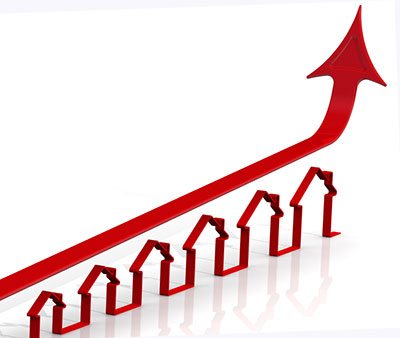Annual house price growth was little changed from June in July, down from 3.1% to 2.9%, reports Nationwide in its latest House Price Index.
House prices also saw a modest increase of 0.3% over the month – down from 1.1% in June. This takes the average house price to £211,671, which is up slightly from June’s £211,301.
The Chief Economist at Nationwide, Robert Gardener, comments on the figures: “The annual pace of house price growth remained broadly stable in July, at 2.9%, only a touch lower than the 3.1% recorded in June.
“On the surface, this appears at odds with recent signs of cooling in the housing market. The number of housing transactions dipped to their lowest level for eight months in June, while in the same month, the number of mortgages approved for house purchase moderated to a nine-month low of c.65,000.”

House Price Growth was Broadly Stable in July, Reports Nationwide
However, he continues: “But a lack of homes on the market appears to be providing support, with annual house price growth remaining only just outside the 3-6% range that has been prevailing for most of the past two years.
“This pattern looks set to be maintained in the near term; survey data points to relatively sluggish levels of new buyer enquiries, but, at the same time, surveyors report that relatively few properties are coming onto the market (and at a time when the number of homes on estate agents’ books is already close to 30-year lows.”
Gardner explains what the future holds for the property market: “Ultimately, housing market developments will depend on wider economic performance. The UK economy slowed noticeably in the first half of the year and there has been little to suggest a significant departure from recent trends in the quarters ahead.
“While employment growth has remained relatively robust, household budgets are coming under pressure, as wage growth is failing to keep up with the rising cost of living.
“This suggests that housing market activity is likely to remain subdued, with the balance in the market shifting a little further towards buyers in the quarters ahead.”
He adds: “Nevertheless, constrained supply is likely to continue to provide support for house prices and, as a result, we continue to expect prices to rise by c.2% over 2017 as a whole – only modestly lower than the levels recorded in recent months.”
The Founder Director of estate agent James Pendleton, Lucy Pendleton, says: “Market conditions just beneath the surface are keeping this ball in the air, despite much talk recently of the market starting to roll over.
“The big question is, where is support for house price growth coming from? Supply and demand is always a supportive factor, but this kind of market behaviour shows just how imbalanced it has become. Prices seem to be finding any excuse to hold their ground and exploiting it.”
She believes: “The cause has to be lack of supply placing a squeeze on the number of homes coming to market, helped in June by mortgage approvals slumping to a nine-month low, with transactions levels also depressed.
“First time buyers may have also played their part in mopping up over the last few months, spying opportunities as prices dipped. Prices fell for three straight months between March and May but, before that, you would have to go back to June 2015 to find the previous monthly fall.”
Pendleton continues: “These slight contractions were not dramatic however, particularly when you consider the traditionally slower summer months have often begun with more severe falls than this.
“Given there are other factors at play, including a squeeze in consumer spending, this could be seen as a sign of confidence among buyers.”
Russell Quirk, the Founder and CEO of online estate agent eMoov.co.uk, has also responded to the latest House Price Index: “UK homeowners will have their fingers crossed that this turnaround in price growth will be more consistent than the British summertime.
“At a glance, it looks as if the dark clouds of buyer and seller uncertainty are finally starting to lift from the UK housing market, with welcome signs of positive property price growth beginning to shine through. The summer months can generally be a slower time of year, with many taking a break from their sale to go away, so it is promising that the market has bounced back, despite the slump in transactions and mortgage approvals witnessed in June.”
He concludes: “Although buyer demand may take some time to return to normal levels, a sustained shortage of stock should continue to stimulate an upward price trend.”

View Comments (0)